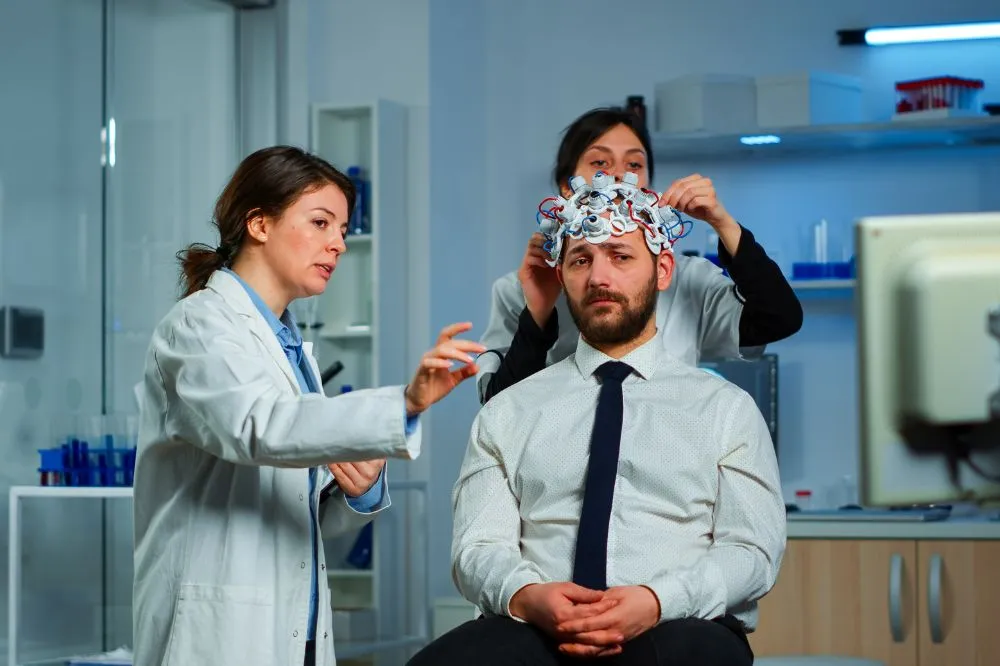Summary: Depression is the most common mental health disorder. Although it may affect most people in their lifetime, 8.4% of Americans live with severe depression, also called Major Depression. Tens of medications and telehealth treatment are available to treat the condition, and patients have to take them for years. However, many fail to benefit from prolonged treatment. The new study shows that genetic testing may help identify the right kind of antidepressants for patients, and thus it can help improve treatment outcomes.
For those living with depression, getting treatment that helps is a significant issue. It means that millions of people continue to live with depression despite taking many medications. The new study provides hope, showing that genetic testing may help improve treatment outcomes.
Anxiety and depression are the two most common mood disorders. These are also the most common mental health disorders globally. Among the two, depression is a more severe condition since it is associated with fatal outcomes. People with severe or major depression may show suicidal tendencies.
Depression may affect about one-third of adults in their lifetime. Fortunately, most are affected by mild to moderate depression, which is often a self-limiting mental health issue. However, US data suggests that about 8.4% or 21 million US adults may experience major depressive episodes. Unlike mild to moderate depression, Major depression is a severe illness requiring pharmacological treatment.
Some signs of major depression include lack of sleep, energy, concentration, low self-worth, and even suicidal thoughts. Thus, it is something that must be treated in all cases.
Identifying the right antidepressant is challenging
There are a plethora of antidepressant drugs. However, the problem is that none of these medications work for all; thus, choosing the proper medication is a significant challenge. Even worse, many fail to experience substantial benefits even after taking multiple drugs. In addition, many fail to respond to prolonged drug therapy.
Although there are many antidepressants, the major problem is finding the right drug that may work for that particular individual. There is no reliable way to know which drug is the best for a given patient. However, if there were a way or medical test that could suggest the right antidepressant for an individual, then the treatment would be much better.
Genetic testing may help identify the right antidepressant for an individual
It appears that a study by the US Department of Veterans Affairs has identified the way of finding the right drug for various patients. They have also found a way to improve the efficacy of the treatment. In addition, specific genetic tests may help identify the right kind of drugs for various patients.
This genetic testing is not for depression or genes associated with depression. Instead, it is about understanding how a person metabolizes specific medications. For example, all antidepressants are metabolized in the liver. The liver metabolizes these drugs using CYP450 enzymes or metabolic pathways. These enzymes seem more active in some and less active in others. Thus, the same antidepressant medication may be quickly metabolized in one and much slower in another. Hence the difference in the drug efficacy.
In the study that included 2000 patients, researchers carried out gene testing. They found that 59% of patients who have undergone gene testing could receive medications without known drug-gene interaction. On the contrary, only 26% of patients received such medicines in the control group.
Since genetic testing helps select the right kind of medications. Researchers found that at 12 weeks, the drop in depression symptoms in those with genetic testing was much more than in those who were not tested. However, the study also found that at about 24 weeks, the difference between the two groups was not statistically significant.
This study shows that genetic testing may help provide faster relief from major depression in many instances. Although, in the long run, it does not seem to affect the treatment outcomes much.
This is among the first studies of this kind, which is significant because it has a large sample size (number of participants). Thus, the study is highly reliable. Nonetheless, there is still a need for more studies to start recommending genetic tests for those living with major depression. However, this study confirms that genetic testing can be included in treating major depression, as it can help select the right antidepressants.






